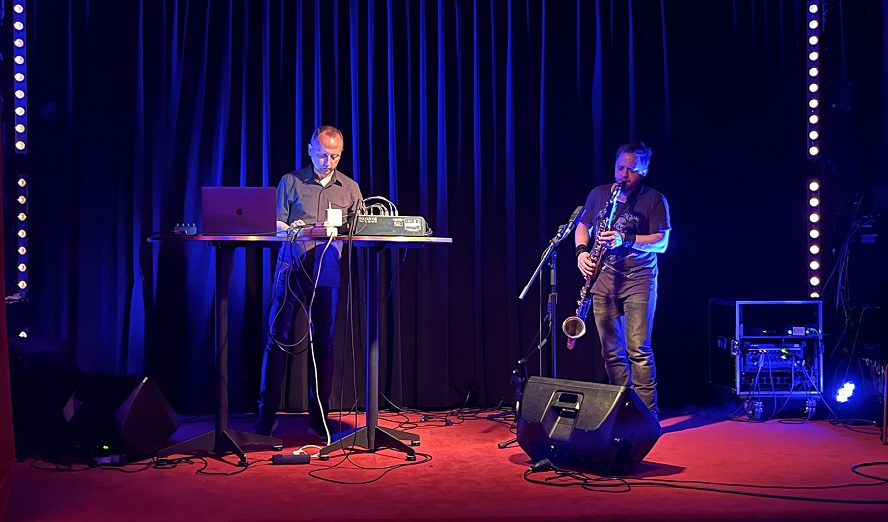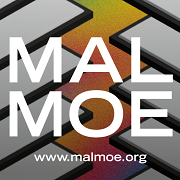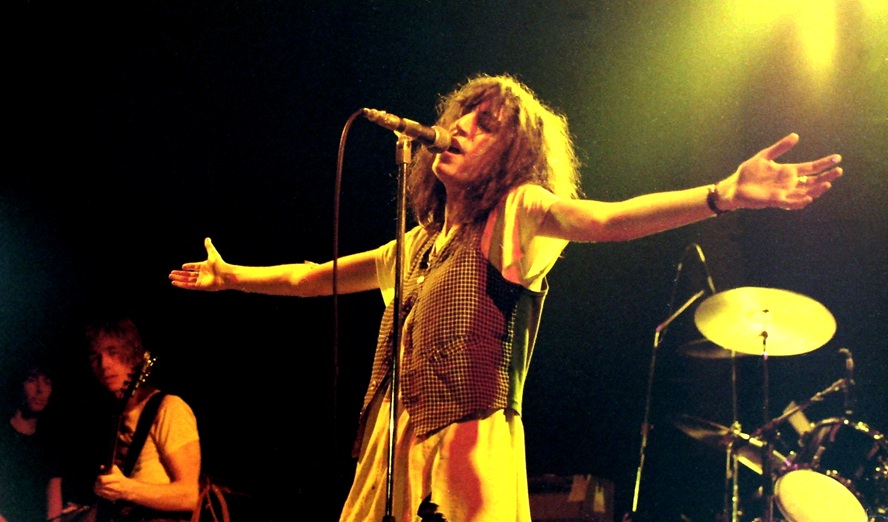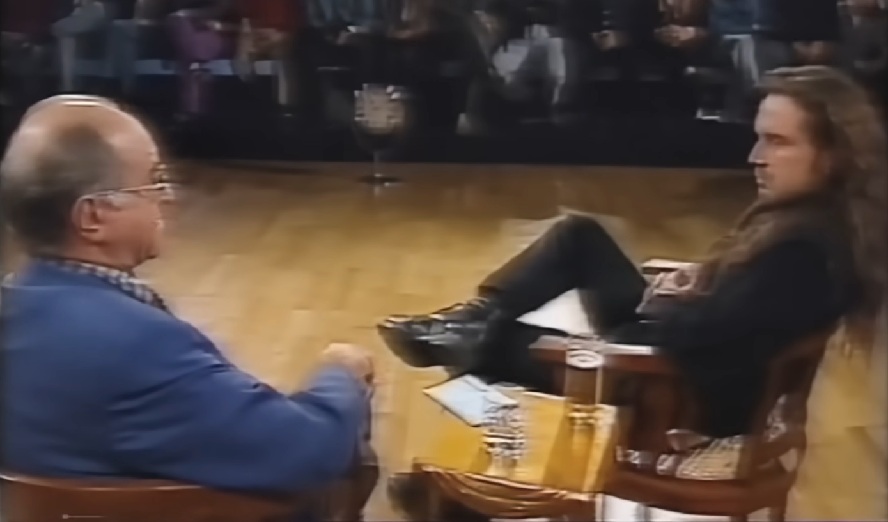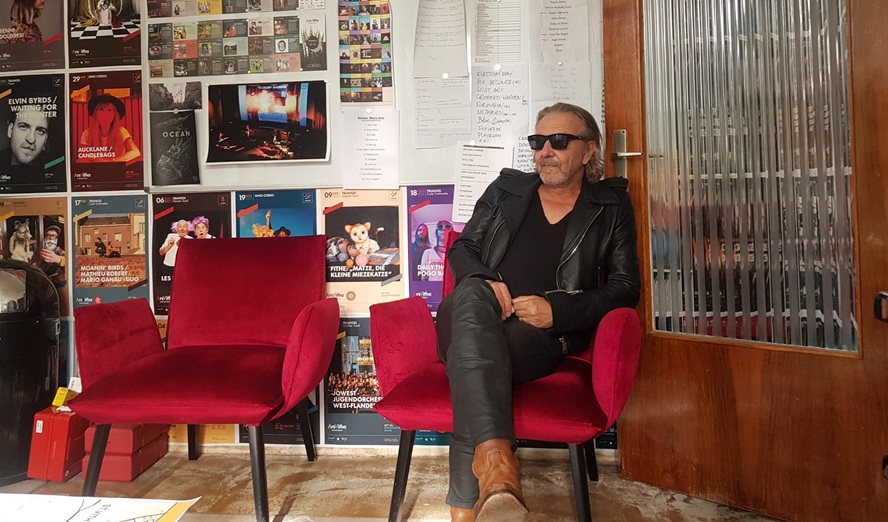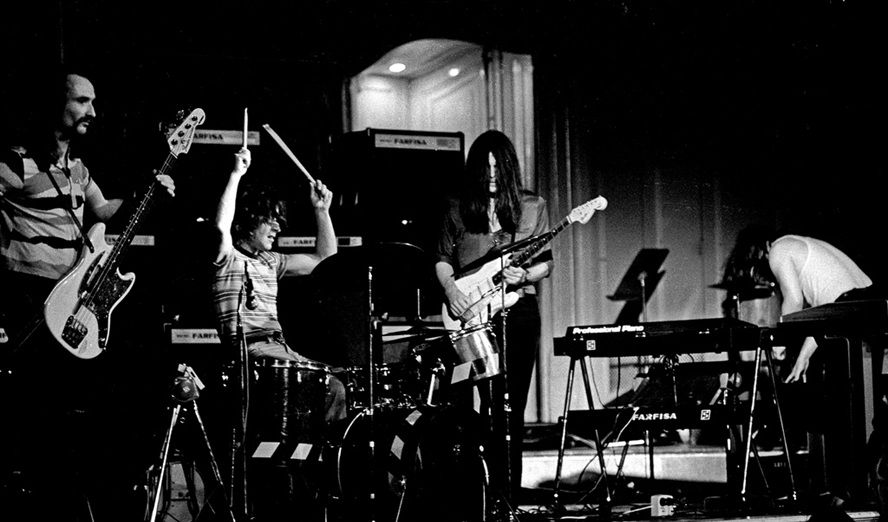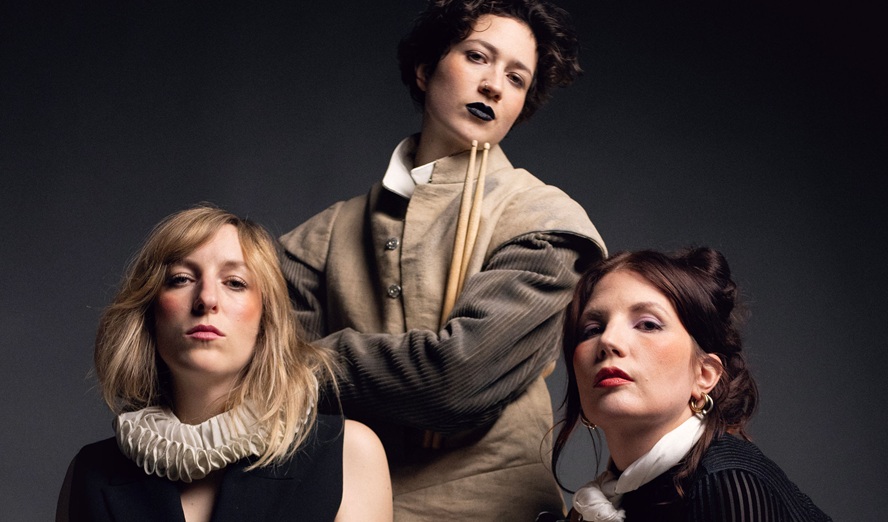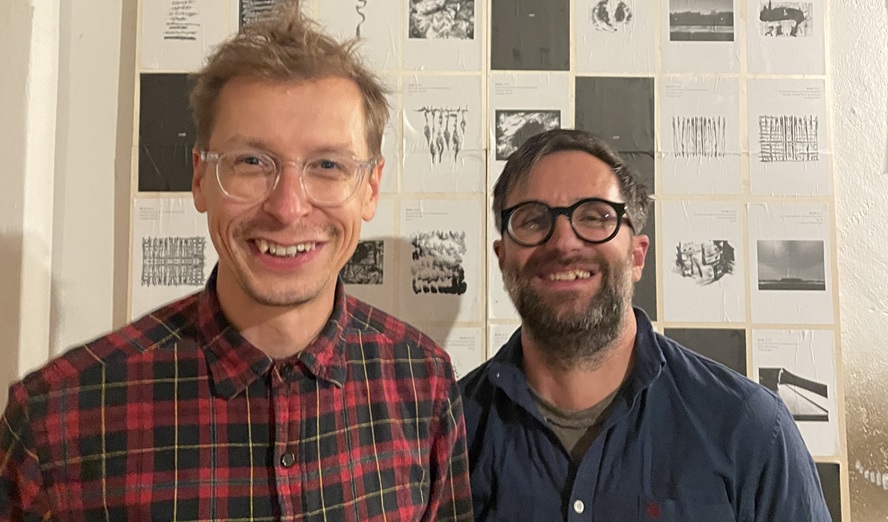British artists Robin Rimbaud and Gareth Davis both can look back on illustrious careers. When the latter »somewhat impulsively« purchased a clarinet whilst window shopping, he probably did not know that he would end up soloing for the SWR Symphonieorchester or the Warsaw Philharmonic. Nor did he anticipate collaborations with diverse artists such as Elliot Sharp or Harsh Noise legend Merzbow. Retrospectively, Robin Rimbaud’s path seems equally unlikely. Under his alias Scanner, Rimbaud gained notoriety for his 1994 album »Mass Observation«, where he used radio scanners to record people’s phone conversations. Since then, his work has not only been sampled by the likes of Bjork. He also released over 70 albums, including the score to the world’s first virtual ballet, and composed the sounds for the telephone system most used in offices worldwide.
Given their impressive back catalogue, it may be no surprise that the duo became interested in memories. In 2019, they released the electro-acoustic soundscape »Footfalls«. The hazy two-piece invites its listeners to explore dendritic paths haunted by a ghostly interplay Davis’s clarinet and Rimbaud’s ambient textures. Like the eponymous pieces by T.S. Eliot and Samuel Beckett, »Footfalls« oscillates between a sense of familiarity and estrangement. In 2023, the duo was invited to revisit this piece in Vienna’s Volkstheater. Following a suggestion by the event’s co-host TONSPUR Kunstverein Wien, skug had the chance to accompany this process. What unfolded was a joyful conversation about growing up, the forgotten legacy of hippie aesthetics and the fickle nature of memory.
skug: Let’s start with an easy question. How did the two of you meet?
Robin Rimbaud: I have no recollection whatsoever. But you do.
Gareth Davis: This was maybe 15 years ago?
RR: 2006, 2007.
GD: I was working with an Italian composer, Salvatore Sciarrino. At the same time, Robin did a project called »Scanner Scans Sciarrino«, with Italian Contemporary Music ensemble Alter Ego. I also knew Francesco Dillon, who’s their cello player. At some point, Francesco and Salvatore told me about Robin. I already knew his music. I had some of his releases. So, I contacted him. I was going to be in London, anyway. We met at Whitechapel Gallery and had a chat.
RR: After that, we began doing things. And over the years we’ve managed to somehow continue doing things.
Can you put into words what drew you towards each other? What made you want to collaborate more intensely?
GD: I really liked that Robin had combined two worlds. Neue Musik, Contemporary Classical Music, but also Electronica, Alternative, Experimental Rock, and to have all these things coming together. Robin seemed to be thinking in a way that I’m thinking.
RR: I’ve always been interested in that meeting of worlds. Of sometimes difficult music with accessible ideas and seeing what you can produce. To bring an audience to difficult and challenging music but present it in an appealing way. One of the issues of contemporary music is that it reaches a very particular audience. But what’s important to realise: a lot of the music that people listen to is born from somewhere else. When you listen to the work of minimalist composer La Monte Young you immediately hear The Velvet Underground. When you listen to Terry Riley, you hear trance music. And all the dots connect. If anything, what we try and do is to join those dots.
Incidentally, you’ve performed stuff by La Monte Young and Terry Riley with an ensemble. Also Stockhausen. Can you tell me a little about it?
GD: This ensemble is my baby, in a way.
RR: We still don’t have a name.
GD: Interestingly, the COVID-19 pandemic was a bit of a trigger. People were locked inside for two years in some places. It was a mental wellbeing crisis. This reminded me of a Stockhausen piece from 1968, »Aus den sieben Tagen«. It is about dealing with crisis. I really like playing contemporary Neue Musik. There are so many directions it can go. »Aus den sieben Tagen« is a text-based piece. This made it the perfect way to start. It doesn’t matter if every performer has the same fluidity or ability to read notated music. Each person could perhaps inspire the other person. So, this idea grew. I put together a group of seven people from very different musical backgrounds. Robin being one of them. At Prague Music Performance we ended up doing a four-hour performance of Stockhausen. It was very successful. They immediately asked us if we had another idea. I thought of Riley and La Monte Young. They come from the same period. They have similarities and differences. They attempt to mix different kinds of people and them inspire each other.
I love that Stockhausen piece. It’s very intense. But to be honest, I’m not super familiar with Terry Riley and La Monte Young.
RR: It was a really dynamic period. Terry Riley, La Monte Young, Steve Reich, that whole gang were all around the same age. There were also a lot of women, like Pauline Oliveros and Annea Lockwood, who are, in a sense, being rediscovered today. There was a lot of exchange of ideas. Indian music was a big influence. Back then, immigration laws had changed so people from India could come and stay for longer periods. So, Indian singing became more familiar to people’s ears. The resulting body of work has had such an impact on what we listen to today. What we’ve ended up with today, particularly in pop music, has a lot of themes and ideas from that world. But audiences generally aren’t aware of it. And they’re still very exciting pieces. Terry Riley’s »In C« is extremely joyful. It gives performers such freedom. Maybe you can call it a kind of hippie aesthetic. It was incredibly, incredibly liberating. And that would then be found in literature and cinema and the visual arts. I find it super exciting.
It seems like an interesting decision for an ensemble to have such a stark contrast between the pieces performed. The dark Stockhausen and the joyfull…
GD: Thematically, yes. But there are similarities in how they deal with the material. Or differences which come out of those similarities.
RR: And full credit to Gareth, for finding musicians who are really good listeners. They are so open. There’s nobody pushing forward too much. It’s about a shared experience. Which sounds awful Americanist in a way. But it’s not about you. It’s about a group. I really like the individuals, but you see them as a whole. The whole is greater than individuals. It’s like a model for society.
You emphasised working and playing together. »Footfalls«, the album you will be performing today, you recorded separately. How was that?
RR: Terrible! (laughs)
GD: The studio is different than the stage. But both sides can influence each other. In a studio, often you’re doing the same thing, just in proximity. Again, it’s about different worlds and how things can come out of these.
RR: And it was based on trust. One trusts the other to act responsibly and respond intuitively.
I admire »Footfalls« for how much you blend your inputs. When listening, I sometimes have trouble figuring out: Is that the clarinet or a synthesizer?
RR: I have no idea. I would be asking the same thing now.
GD: From the perspective of someone playing an acoustic instrument, it’s interesting to see the different sounds one can produce. How the sound is produced acoustically before adding anything to it.
RR: I’m playing guitar on it, as well. So, that’s me pretending to be Robert Fripp, like a cheap bargain basement Robert Fripp.
In your article that accompanied this album in 2019, you said Robert Fripp’s collaboration with Brian Eno was a big inspiration for this album.
RR: »Evening Star«. I love this collaboration. Robert Fripp had just basically closed King Crimson down. He wanted to explore the ideas of J.G. Bennett. »Evening Star« united very different forces. But it was also a product of their friendship. People forget about those things.
Another »loose« influence is in the title of the album, »Footfalls«. It’s from literature: There are eponymous pieces by Beckett and Eliot.
RR: Beckett? Never heard of him. (laughs)
GD: Just randomly.
RR: Once in the 1980s he was directing a series of theatre plays in the studio quite near where I lived. I literally used to go to the area and walk around in the hope that I might see him. Tragic, isn’t it? Beckett played a key role in my upbringing, kind of. I studied English literature. When I first discovered Beckett, it was so liberating in terms of what the economy of language can do.
GD: For me it’s the same. Both Beckett and Eliot, James Joyce as well, were so interesting for me growing up. For very different reasons. Sometimes there were small bits of information that were suddenly appealing. Or the ways in which word play came about and suddenly appealed at the age of 16.
RR: The Beckett for me is »Krapp’s Last Tape«. It’s one of my favourites. There’s an old man sitting there, and he plays back tapes of himself that he recorded 30 years earlier. It’s about life and decay and memory and changes and these kinds of things. It’s beautiful. It’s incredibly powerful and romantic or melancholic. I’ve always been drawn to melancholy.
You recently released an article about your earliest memories of music. In it, you wrote about re-listening to old recordings, of yourself, of the TV, and your brother.
RR: When talking about Beckett, I realised that’s what I’ve been doing as well. When my brother died, I received his belongings with tapes from 1977. On them, I’m about 12 or 13 years old. It’s been interesting to go back and hear myself at that age. Back then, cameras were expensive. The only photos we had were from our holidays. And maybe it’s four photos, maybe Christmas, never birthdays. I don’t have a single photo. Nothing, absolutely nothing. Except for these audio recordings. Which is even better than photographs. I’ve got the whole sound of my mother coming in. My brother and I arguing about biscuits. Hearing the football results on the old TV. If you were to listen to the whole thing, it’d have no meaning for you. But for me…
GD: This is interesting. Currently, I’m putting together a book based on Alvin Lucier’s »Memory Space«. The idea behind this piece is simple: Alvin Lucier instructed the performer or performers to find a certain space, an area. Could be a city, could be a room, could be an environment. He then asked them to create what he calls a »memory device«. With it they should recreate this space in a performance setting. For this, people often use recordings. Now, what was interesting for me was to ask sound artists to avoid using recordings. They could write themselves a series of notes. They could take pictures, images, drawings. Anything that’s not a recording. To act as this trigger to somehow remind themself at a later point of how to perform and recreate this memory space.
It seems like a motif that’s interested you for a while. In 2014, you did a recording based on »Memory Space« with Machinefabriek. What keeps you coming back to it?
GD: Lucier’s music, like Riley’s and La Monte Young’s, can be looked at in so many ways. Because there is an openness to it. There’s also a strictness to it. But it’s got an element that allows for multiple interpretations, and from different kinds of performers. I performed »Memory Space« in very conventional settings, with almost academic ensembles, with rock bands, with people from the experimental scene. You could ask a group of schoolchildren. There are so many possibilities in this.
I’m also curious about it because memory might be the central motive in Eliot’s poem »Footfalls«.
RR: True.
So, there seems to be a certain overlapping between these works.
RR: Think about the history of recorded music. It’s not just, but all about memory. You know, there’s an amazing piece by Canadian composer John Oswald, called »Plexure«. It’s 20 minutes long. Probably one of the most intense listening experiences you can have. Because it’s only about memory triggers. It starts when you hear a sound, say, a piano. You know it’s from a song. You can’t tell which one, but it’s a famous one. Michael Jackson? But just as your brain is recognising it, Bruce Springsteen appears. And then the Jacksons and then the Beach Boys. And they all fall into one another. It’s mind-blowing to listen to. It’s almost impossible. Because your conscious brain can’t work it out. You’re always behind. It’s quite a brilliant exercise in memory exploration.
GD: The interesting thing is, on a practical level, if you’re listening to music, by the time you’ve heard it, it’s already become the past.
RR: I love the idea of how sound works with memory. In literature and photography so many artists work with these ideas, as well. I find it inspiring. Anyway, I was going to ask Gareth the question: Do you ever listen to your old work? I will never, ever listen to anything I’ve done after it’s come out. So if somebody asks me a question about them, I’ll sometimes have to say: »I honestly don’t know.«
GD: There’s a few tracks. But they are always things that I’ve done collaboratively with other people. Then, I’m listening more to how the group was playing, how something happened. Where I feel: »Wow, it still surprises me how that worked. How we got to that point.«
RR: A while back, I was at an event in Italy. This guy was playing music. I went up to ask him what it was. He held up a sleeve. And it was mine. I was so ashamed. How can you look more like an idiot than by going up to someone saying: »This is cool music, what is it?« And it’s your own. It was awful… But to be fair, I’ve released about 70 albums. I always see them as some kind of postcards. They don’t play a pivotal role in my life. They’re good documents.
GD: Memories, archives.
RR: I’ve collated all my life. I’ve got about 400 live recordings of gigs over the years. I’ve edited them and they’re all in order. Going back to a long time ago. To 1822.
GD: At least. On an Edison tube.
RR: I could put them on Bandcamp and just destroy people with 400 live albums. Can you imagine?
I’m curious about tonight. So, you don’t listen to your albums. Since you recorded »Footfalls« in 2019, lots of things happened. How do you approach going back to this album?
RR: Going to mime.
GD: And play it in the background. (chuckles) This is the interesting thing with improvised material. You have certain structures. So, going back is like revisiting a written piece. You can play in a different way, but it still retains its identity of the original work. Use it to go somewhere else.
RR: I like the fact that I don’t know. To me, that’s more exciting than being able to say what it’s going to be. Would you want to live a life where you know exactly what’s going to follow? You know, there’s that kind of thought experiment: Would you like to know when you’re going to die? I can give you the date.
GD: Tick tock, tick tock.
RR: What would you do if it’s tomorrow?
GD: You’d want to play a show tonight! I mean, come on!
Links:
